St. Magnus Cathedral
This mysterious, medieval cathedral remains unbuilt but fiercely protected.
Abandoned before it was finished, this cathedral stands as a reminder of the Middle Ages, a time when its small village was a cultural and religious hub within the Faroe Islands.
Not a lot is known about the half-built St. Magnus Cathedral, which was erected sometime in the 13th century but never completed. Even still, it remains a major draw in Kirkjubøur, the southernmost village on Streymoy, one of the 18 of the Faroe Islands.
Since 1997, conservation efforts have kept the cathedral ruins from further disintegrating. The preservation project has also increasingly drawn visitors to Kirkjubøur. However, since 2010, the efforts have slowed down a bit and the cathedral is slowly being consumed by the elements.
St. Magnus Cathedral is located at the southern tip of Kirkjubøur, next to the family farmhouse (called Kirkjubøargarður)and St. Olav’s church, both structures dating to the year 1110 and still in use today. In fact, the farmhouse is occupied by the 13th generation of the Patursson family.
Family patriarch and arguably among the most famous of Faroese artists, glass artist and sculptor Tróndur Patursson lives in a hillside home just up the road from the village’s more prominent landmarks. (His house is the one with all the beautiful glasswork on the facade.)
Today, Kirkjubøargarður is a museum that you can visit with a trust system for payment (you can drop a payment inside).
If you look out to sea from St. Magnus Cathedral, you will see Kirkjubøhólmur, a small islet that contains many remnants from historic Kirkjubøur that perished along with around 50 homes in the village during a 16th-century storm.
Know Before You Go
In addition to the typical guided tours, the village is easily reached by public bus from Torshavn, and it's popular to hike between the seaside village and capital city on a path over the grassy, sheep-grazed hillsides in between, which is (relatively) well-marked with cairns.

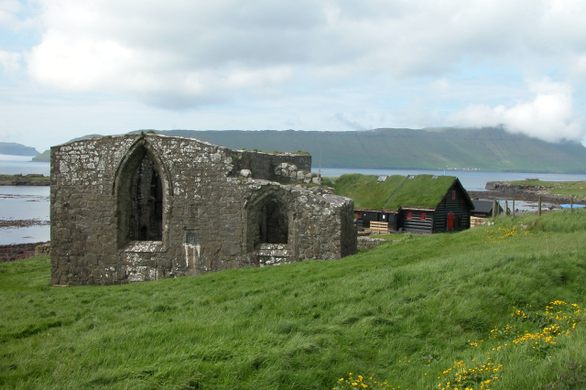
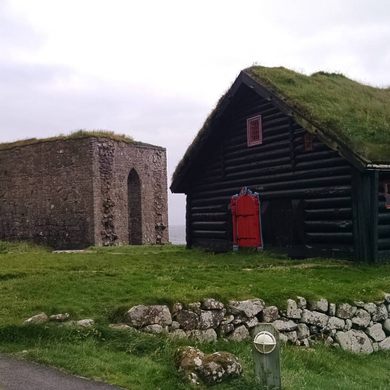
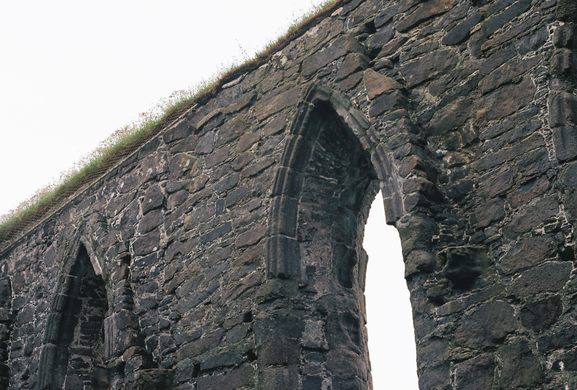
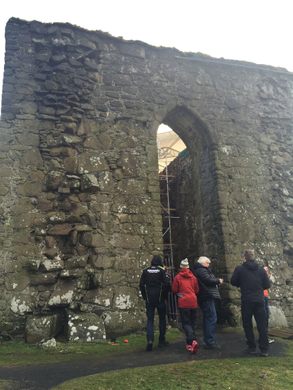
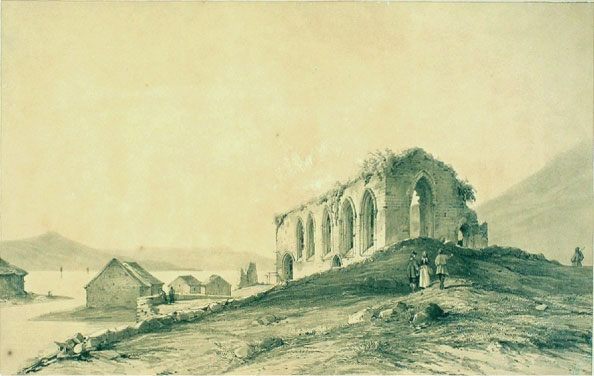

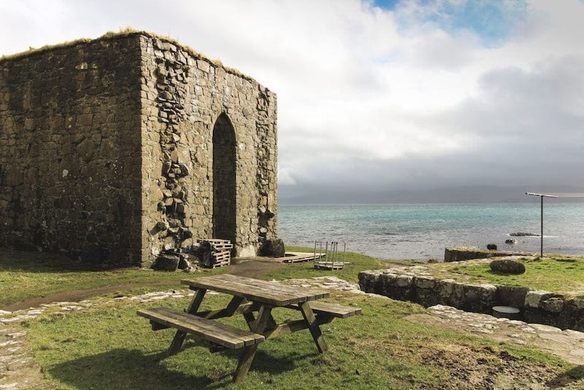







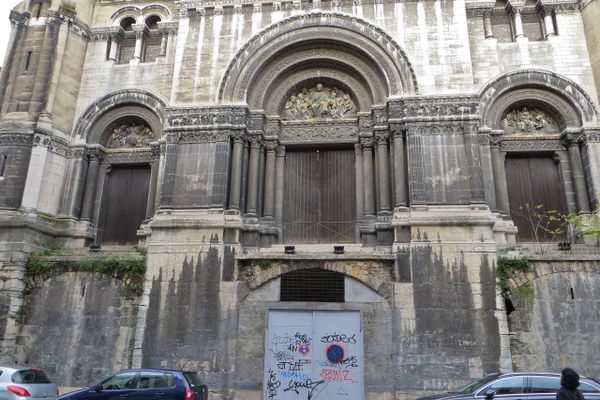




Follow us on Twitter to get the latest on the world's hidden wonders.
Like us on Facebook to get the latest on the world's hidden wonders.
Follow us on Twitter Like us on Facebook